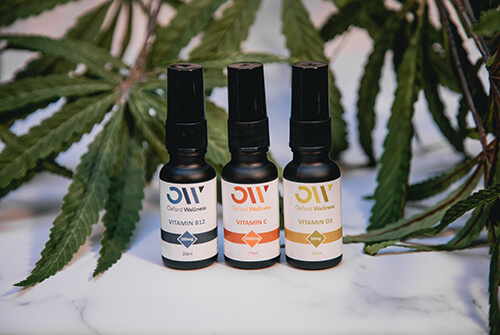With its association with cannabis, CBD was once only the concern of the more boring and tiresome of stoners. However, times have changed, and you can now find CBD in an incredibly wide range of products, from face creams, sweets, hummus, and even tampons.
You can even find CBD products in your local supermarket, and find CBD products designed for pets. The UK’s CBD market has been forecast to reach £900 million by 2025.
The popularity of CBD can be traced back to 2016 in the UK, when the Medicines and Healthcare products Regulatory Agency (MHRA) ruled that products containing cannabidiol used for medical purposes had to be classified as a medicine, leading to increased interest as CBD as a product.
CBD is one of the two active components of cannabis, along with THC (tetrahydrocannabinol) which remains illegal in the UK. Cannabis oil must only contain a maximum of 0.2 per cent of THC.
But how is CBD produced from cannabis?
As cannabis cannot be grown in the UK, production of CBD is produced abroad, largely in Europe or the US. Cannabis farmers deliver the green needles of the hemp flower they have harvested at processing centres, which can typically handle around five tonnes of biomass every day.
Samples of the biomass are taken and tested in a lab, where researchers look for potency, as CBD needs a minimum of six to seven per cent CBD to make the conversion process economical.
Further testing, often by third-party labs, will check again for potency, as well as for pesticides, heavy metals, and microbes. These tests will give an insight into how the crop was grown. Microbial tests will inform the lab on how the harvested crop was stored, and heavy metals will help determine where the crop was grown.
Once the results of the tests are complete, the biomass will be released from quarantine and the process of making CBD begins.
The first step in this process is called decarboxylation. The biomass is heated in industrial ovens to trigger a chemical reaction, which helps to separate the psychoactive components of the drugs, the
decarboxylated form, which is what is desired by cannabis users to get them high.
Following a further set of tests, the biomass is then fed into huge ‘extraction socks’. Operators will place the socks into extraction columns, where one of two extraction processes are used, separating off what’s known as crude extract via carbon dioxide or hydrocarbon extraction.
Next, the crude extract goes through a ‘winterisation’ process, where it is heated up until it is liquefied, injected into a tank that contains methanol, and heated again until it dissolves. The resulting mass is then chilled to -20ºC to create a slurry.
The sock filters the remove waxes and impurities to produce a thick, clear fluid. This is then filtered again, and the methanol is allowed to evaporate, which leaves behind full-spectrum oil. However, this oil still has a high THC level and needs to be diluted before it can be transported.
The oil is then distilled through a system that uses high temperatures and a high vacuum to evaporate the oil and reconvene it. This process changes the oil from a dark, almost black mixture to a hot river of clear amber, similar to the appearance of pasteurised honey. The distillate is now at 75 to 85 per cent CBD content.
A final crystallisation process removes anything that isn’t CBD, leaving a final, off-white powder, which is CBD in its purest form – around 99.45 per cent CBD.
While there are claims that CBD has therapeutic benefits in a range of diseases, the researchers in such cases use a much higher concentration of CBD than found in standard consumer products.
The UK has strict regulations when it comes to CBD, and regulators have classed CBD as a novel food, which means that producers of CBD need to make a novel food application that contains data on their products.
UK legislation means that manufacturers and retailers have to be very, very careful about the claims that they make because MHRA specified CBD as a medicinal product back in 2016. Therefore that means that if manufacturers and retailers make claims, then that has to be for licensed and market authorised products.
CBD has developed into a huge industry, and it is hoped there will be further research to help support the claims for its medicinal prowess, as well as supporting the claims made by many consumer products.
If you’re looking to discover the benefits for yourself and looking for premium CBD products, visit our online store today.

